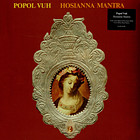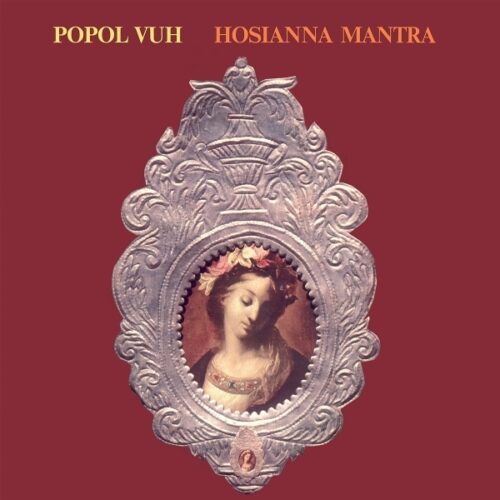It happened quickly: only recently Florian Fricke had crafted a singular mood within Krautrock on Popol Vuh’s In den Gärten Pharaos, using synthesiser and Fender Rhodes — and suddenly everything was upended. On Hosianna Mantra (1972), he gathered a new ensemble around him and shifted to different instruments. Fricke now sits at the piano and harpsichord, joined by electric guitar, oboe, the Indian lute tambura, and most strikingly, the soprano voice of Djon Yun.
Where the previous album conveyed a kind of serene spirituality, here Fricke pursues his vision far more explicitly, setting Yun to sing words like »Kyrie« and »Hosianna«. The music all but abandons rock conventions — apart from one small percussive exception, there isn’t even a beat. In doing so, Fricke fulfilled a goal shared by many German musicians of the time: to emancipate themselves as far as possible from Anglo-American rock models.
That this intimate chamber music has sometimes been filed under New Age is little more than a well-meant point of reference. In truth, Fricke created something that sits between sacred tradition and pop — and achieved a level of synthesis that remains unique. Whether one hears in its irony-free solemnity a realm of beauty or simply kitsch is a matter of taste. But for anyone afraid of missing out — this time, the fear is justified.

Hosianna Mantra

